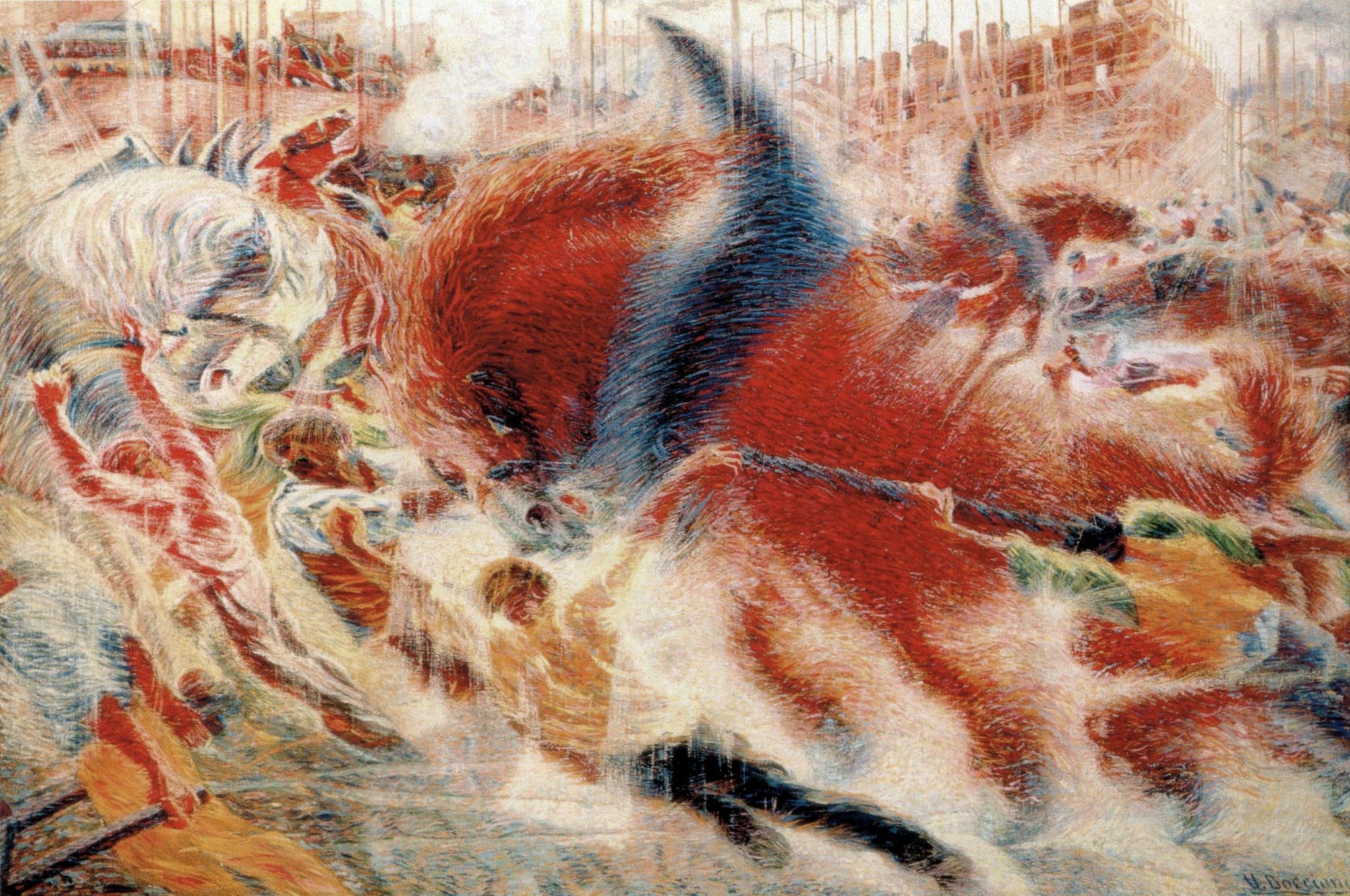The year in technology: AI came at us fast and hard in 2024. What is it all for?
In 2020, ‘technology’ swooped in as a vital resource with the proliferation of video conferencing and e-commerce’s transition into an essential – as opposed to luxury or auxiliary – means of buying what we need. This ‘Great Online’ accelerated a mass migration of social and commercial life into the digital sphere, spawning a dizzying variety of niche aesthetics, politically active subcultures and promising cyberactivism. In 2021, headlines grew weary of the permeating powers of recommendation algorithms that gave users the sense that apps like TikTok and Instagram knew them better than they knew themselves. By 2022, the excitement and alarm all flattened into a disaffected ennui that slid into the outright nihilism that characterised 2023: people were playing games on Temu to win coupons for 98-cent earbud cleaning sets.
I use scare-quotes to introduce this brief history of ‘technology’ because, more often than not, when ‘technology’ is named in flashy headlines or debates about the future, we are unlikely to be talking about ‘the practical application of knowledge, especially in a particular area’, as defined by the dictionary. Instead, ‘technology’ more frequently denotes a much narrower subset of human activity: a profit-seeking industry grounded in the technological cultures of the military–industrial complex and Western industrialisation. A sector that, in 2024, cemented itself as technocratic oligarchy, set to further embed itself into our governments as well as every other part of our lives through the proliferation of artificial intelligence technologies.
Artificial intelligence came at us fast and hard in recent years. It tempted management teams across industries with its promises to boost productivity and slash production costs. Software companies dazzled consumers with the power to instantly generate deepfake pornography, while ChatGPT emerged as an easy shortcut for boring homework assignments. But the results have done little to demonstrate that content-generating AI products are anything more than ‘stochastic parrots’ or ‘beautiful plagiarism machines’. ChatGPT has slowed its developmental progress while much-hyped AI wearables like Humane AI’s pin launched to a flop release. But all we have to show for it is ‘AI slop’, a glut of cheaply produced content that’s taking over feeds, flooding DMs and search results in service of an amorphous web of scams and engagement-farming businesses.
Technology and labour author Brian Merchant writes that we are witnessing the beginning of the end of the generative-AI boom. ‘The technology that was at this time last year being sombrely touted as so powerful that it posed an existential threat to humanity is now worrying investors because it is apparently incapable of generating passable marketing emails reliably enough,’ Merchant writes. And yet, despite continually failing to live up to their technical and economic promises, AI – of many forms – is set to only grow more aggressive. Even as investors are pulling out and clients are cancelling their contracts, Merchant adds, companies like Google, Microsoft and Meta plan on further increasing their spend.
This year, technology as shorthand for Big Tech has made frightful leaps towards its ultimate goal of capturing the whole of society, government and nature in order to brute-force into existence its version of the future – one dominated by seamless interfacing, frictionless designs, glossy surfaces, airy metaphors, boundless productivity and total optimisation – through artificial intelligence. Theirs is a futurism not unlike Filippo Marinetti’s Italian Futurism, moved by the ‘excitement of machinery’ and an urgency to throw everything we have into its fast-approaching future. Like the Italian Futurists, today’s AI-evangelists have a tendency to align themselves with questionable political leaders: the most obvious example of this case is Elon Musk’s freshly intimate relationship to the president-reelect, Donald Trump. The South African native and Tesla Motors CEO financed Trump’s latest campaign and will soon work as leader of the new Department of Government Efficiency (DOGE) along with Vivek Ramaswamy, where they intend to slash government jobs and dismantle regulations in the name of efficiency.

But all this airy talk of an easier and shinier future is undermined by the desperate political and financial manoeuvring required to keep their efforts afloat. You wouldn’t need despots if the technology was actually worth its salt. And as it turns out, AI is hardly the revolutionary expansion of human ability it pretends to be: OpenAI has long relied on exploitatively underpaid workers in Kenya to label ChatGPT’s datasets. The computational power needed to run this software, as well as the data centres that store those datasets, are so energetically demanding, it’s triggering a boom in the fossil fuel industry and prompting companies to abandon their clean energy plans wholesale. But even if it did all run on ‘clean’ energy, it would be at the requirement of inhuman quantities of rare earth minerals like cobalt and lithium, which are linked to contemporary slavery and genocide in the Democratic Republic of Congo. Never mind the technology’s unsustainable greed for data and its ambiguous use of existing works – of art, literature, research, design, identity. All of this for a dead-end business?
As artificial intelligence goes from niche technology to booming business sector and deflates into its current status as failed techno-revolution, its ideological underpinnings float up closer to the surface. Tesla’s Elon Musk, OpenAI’s Sam Altman, Peter Thiel, Marc Andreessen, Sam Bankman-Fried have all, at some time or another, identified with labels associated with the TESCREAL bundle: an acronym for transhumanism, extropianism, singularitarianism, cosmism, rationalism, effective altruism and longtermism. According to a paper published in April this year, these ideologies are driving the race to attempt to build Artificial General Intelligence (AI’s as-yet-theoretical successor and superior).
The paper describes how, ‘TESCREALists have created a veneer of scientific authority that makes their ideas more palatable to uncritical audiences, and thus have succeeded in influencing research and policy directions in the field of AI’. Their fixation on intelligence, specifically measured through Intelligence Quotients (IQs), belies a history that links these schools of thoughts to twentieth-century strains of eugenics. For example, according to effective altruism, the immediate human and environmental costs of accelerating the development of artificial intelligence is justifiable when compared to the long-term benefits of AI. Furthermore, the act of ‘anthropomorphizing systems outputs… by calling them “thinking” or “sentient” machines’ not only erases the human element that produces these outputs, but passes as scientific or impartial the same ‘harmful ideas [that] have resulted in systems that perpetuate inequity, centralize power, and harm the same groups that were targeted by the first-wave modern eugenics movement’.
The power amassed by these new technocrats is frightening. But there is no reason to be dazzled by their barely functional technologies. If generative AI is good for one thing, it is to make fun of itself. Generative AI has done little more than resurface the art historical debates about authorship and systematic art we had in the wake of 1960s Conceptual art.
However, I’m tickled pink by this exponential cat meme where a Redditor prompts Midjourney to produce the image of ‘a cat, but it gets progressively successful in life’. The first image shows a brown tabby with a fluffy tail and smiling eyes sitting on a crimson cushion. The more successful version that followed sees the same cat, this time wearing a suit, sitting on the desk of a corner office, diplomas and certificates hanging from the wall behind it. A few repetitions of the prompt later and the cat is wearing a cape and sitting on a throne in a hall that is floating through outer space, worshippers kneel all around it and light rays radiate from the crown of its head. The final slide: this most-successful cat is now a whitish Siamese cat sitting in ‘a surreal and abstract dimension, achieving a level of success beyond human comprehension’. It just tells on itself. Success according to generative AI is world domination, worshipful subjects and wizard-like powers. It’s all so excessive, so immature and, ultimately, so impoverished.
Michelle Santiago Cortés is a writer and critic based in Puerto Rico
